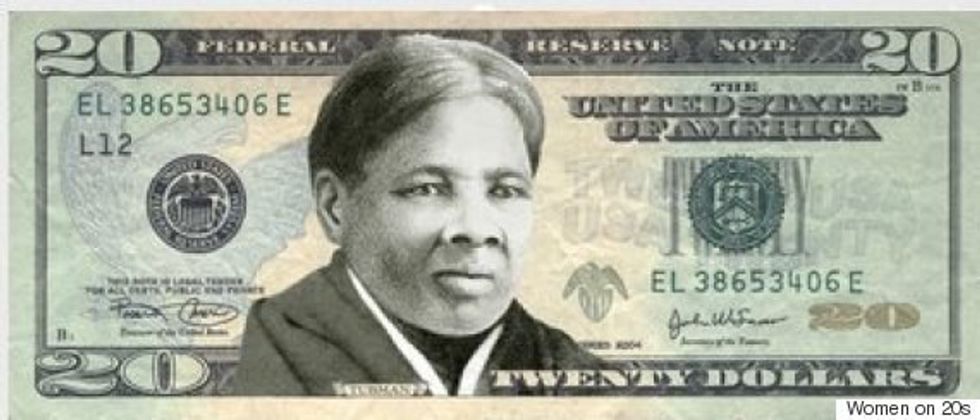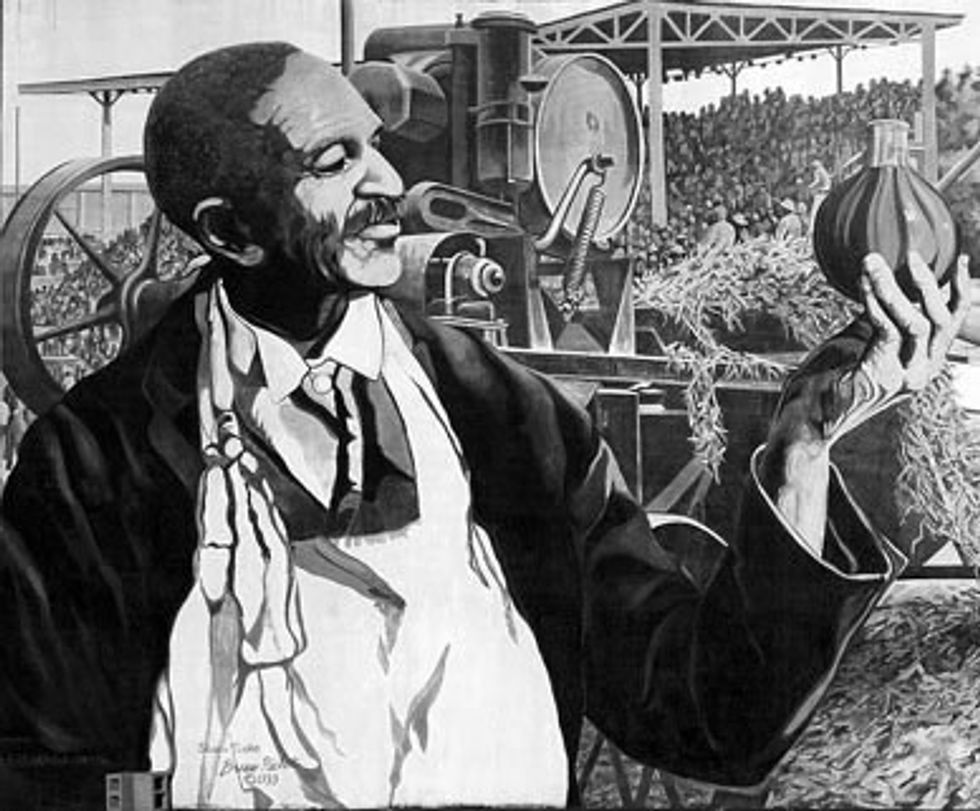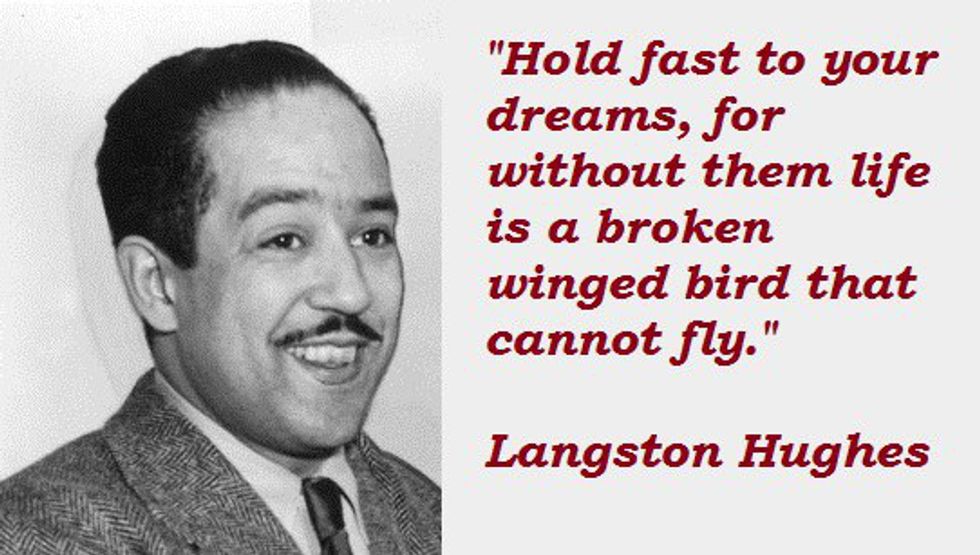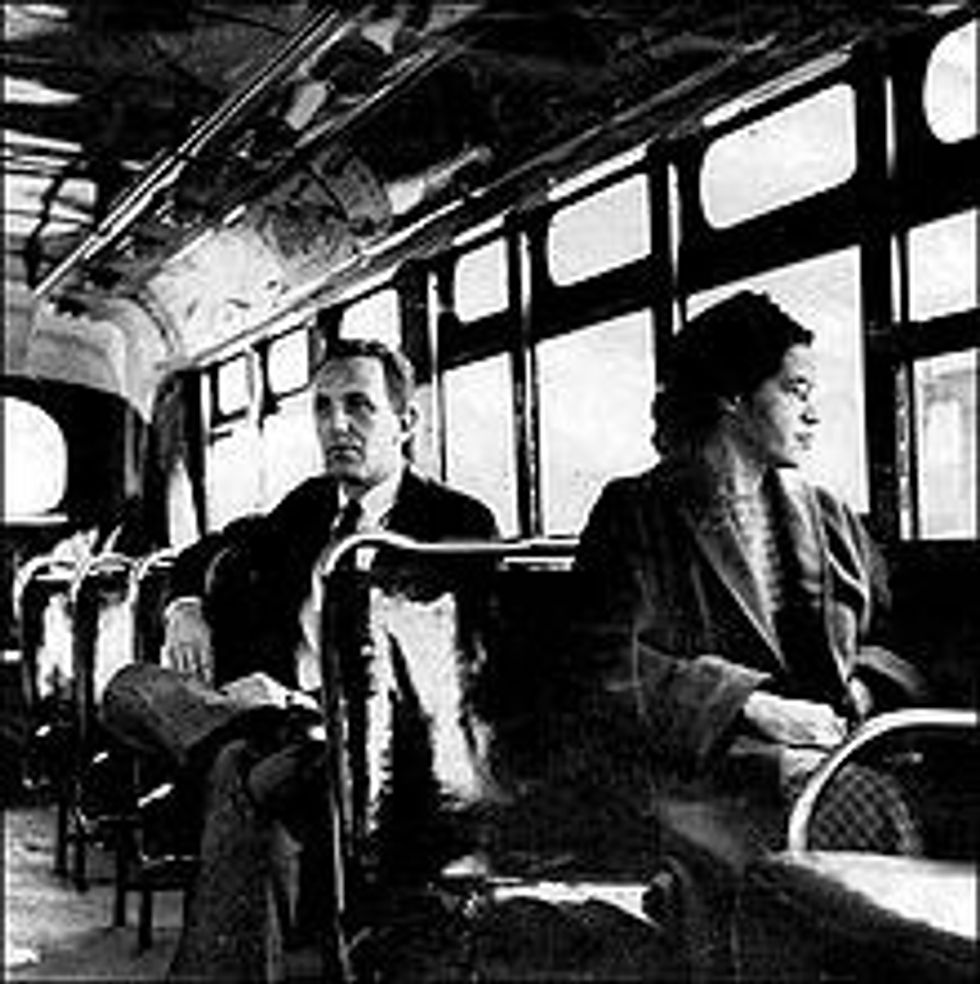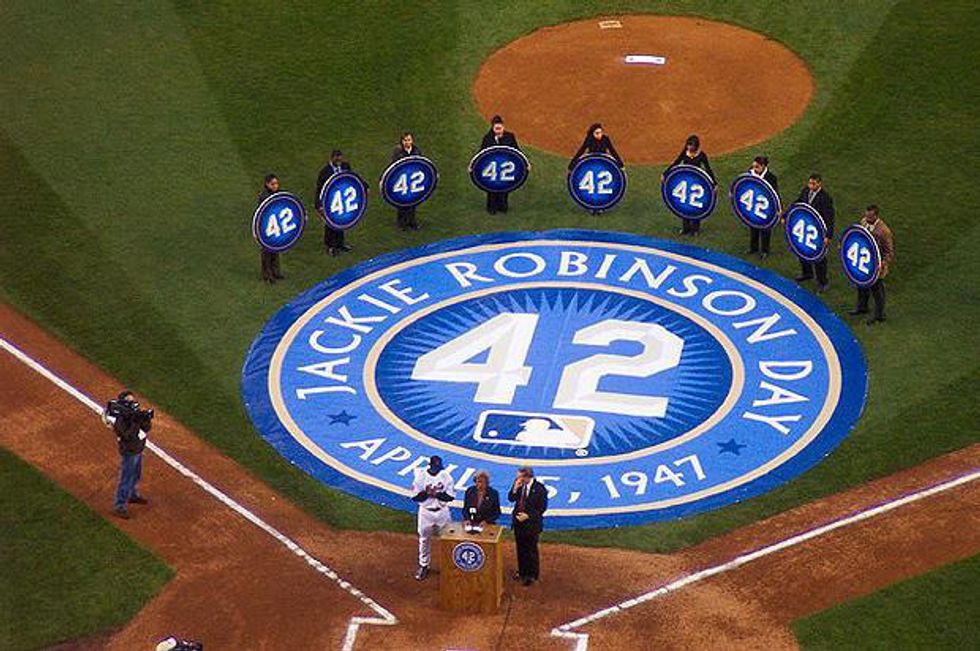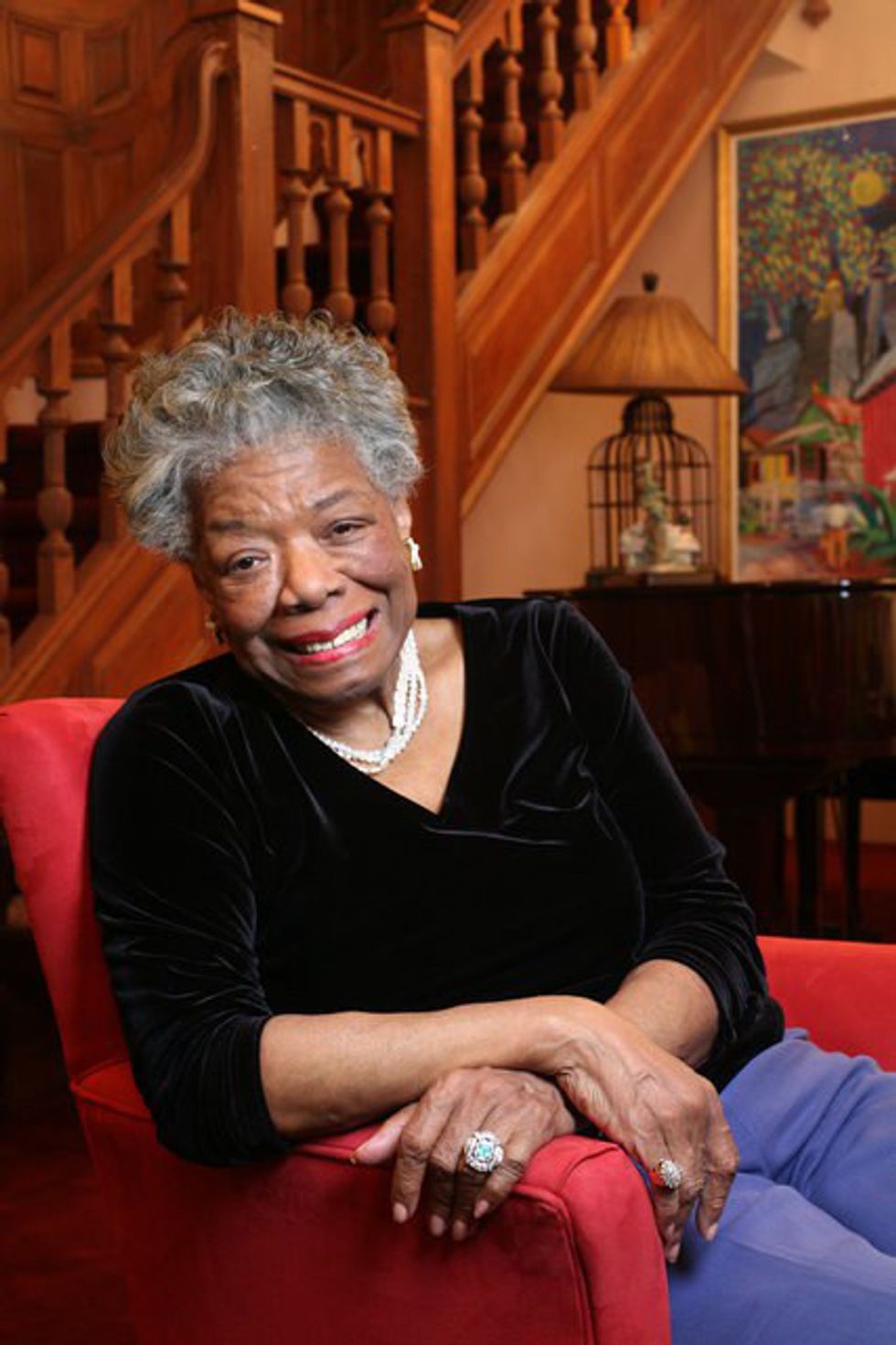Happy Black History Month!!! February is the month when Americans and Canadians reflect on how much Blacks have done for the world. Negro History Week was too short to celebrate all the greatness, so it turned into a month. Thanks to Dr. Carter Woodson, we take some time each day to thank our historical figures for their accomplishments, which we tend to take for granted and do not realize how blessed we are. For example, using elevators with automatically opening and closing doors was not a thing until Alexander Miles designed one. Remember to thank Miles when you are in an elevator but can't press the close button because you are carrying groceries or luggage in both hands. Celebrating black history is not exclusively for blacks. Black history is American history. Anyone and everyone should celebrate it. During this time of researching, reflecting, thanking, and celebrating, I created a list of 15 figures that shouldn't be ignored.
1. Fredrick Douglass (1818-1895)
During the times when slavery was legal, Fredrick Douglass, who escaped to freedom, was the kryptonite of slave owners. Douglass was a highly educated black man. Remember, it was a crime for blacks to become educated, but Douglass did not care. Reading helped Douglass learn about abolitionism. Then, Douglass teamed up with William Lloyd Garrison, Abraham Lincoln, and other abolitionists in the battle against slavery. Striving for his goals, Douglass wrote books and articles and advised President Lincoln to write the Emancipation Proclamation. Fighting for the rights of blacks was not enough for Douglass because soon he began to advocate for Women's Rights.
2. Harriet Tubman (1820-1913)
"I was the conductor of the Underground Railroad for eight years, and I can say what most conductors can't say—I never ran my train off the track and I never lost a passenger." - Harriet Tubman
How many women you know were viewed as a threat to many men and was placed with a bounty? Harriet Tubman, who is nicknamed Moses, would have been regarded as a criminal for breaking the laws, but they neglected to acknowledge that she broke the law to save the lives of others. They didn't realize that the law was already a "broken" law that desperately needed to be fixed. The "Star Spangled Banner" states that America is the land of the free. So, why did it take so long for the slaves to be free? It was only right for Tubman to fight for what's right. Tubman, who was allied with the Quakers, risked her life to free slaves. Her legacy will forever inspire people to fight for equality.
3. Booker T. Washington (1856-1915)
Booker T. Washington is another historical figure who was born a slave and was freed by the Emancipation Proclamation. Washington began his life when it was illegal for Blacks to become literate; however, similar to Fredrick Douglass, Washington knew the importance of being educated. To improve the education of Blacks, Washington founded the Tuskegee Institution, which is now known as Tuskegee University. Washington believed that great education would help African-Americans gain the acceptance from the rest of the nation. In 1901, President Theodore Roosevelt honored Washington by inviting him to the White House.
4. George Washington Carver (1864-1943)
George Washington Carver is well known as the "Peanut Man." Carver was the main agricultural teacher at Washington's Tuskegee Institution. His work was dedicated to finding solutions to the financial problems of black farmers, who had it rough during their first years as free men. Carver developed techniques that helped farmers to become efficient without having to use expensive equipment. For example, the "Peanut Man" designed over 100 products by using a peanut.
5. W.E.B. Du Bois (1868-1963)
I remember learning about Du Bois in my American history classes and wondering what W.E.B. stood for. William Edward Burghardt Du Bois is a man of many hats. Du Bois was the first African-American to gain a Ph.D. from Harvard University. He was an educator, writer, poet, and civil rights activist, among other things. Other than clashing with Booker T. Washington on methods to advance the lives of Blacks, Du Bois is known for founding the Niagara Movement and the National Association for the Advancement of Colored People (NAACP). It clear to say that Du Bois paved the way for the future 20th Century leaders and civil rights activists.
6. Langston Hughes (1902-1967)
Langston Hughes was a phenomenal writer. He was one of the main contributors to the Harlem Renaissance. Because his soul grew deep like rivers, Hughes poems, plays, and stories spoke life to the readers and were filled with jazz and blues music. If you ever want to relate to the urban black culture, read a couple of Langston Hughes poems.
7. Thurgood Marshall (1908-1993)
When I was a kid, my church hosted a black history play, and I was the lucky one to portray Thurgood Marshall. Thurgood Marshall became the first African-American to become a Supreme Court justice. Before he became a Supreme Court Justice, Marshall was an astounding lawyer. The Civil Rights activist played a critical role in the Chambers v. Florida, Smith v. Allwright, and Brown v. Board of Education cases.
8. Rosa Parks (1913-2005)
In today's society, we tend to forget how powerful Rosa Parks's actions were. Today, everyone loves sitting in the back of the bus because the back is where the most fun is. Back then, Blacks were forced to sit in the back of the bus or wherever the designated colored section is located. The designated colored sections were usually behind the Whites or less welcoming areas. Rosa Parks and the Freedom Riders were tired of segregation, so they stood up against it. Well actually, in Rosa Parks's case, she audaciously sat down. Of course, she was arrested for breaking the law. Parks's arrest showed America that a change needed to be made. The bus boycotts become a worthy trend that catalyzed the Supreme Court to rule segregation on public bus as unconstitutional.
9. Nelson Mandela (1918-2013)
Celebrating Black History Month is more than just celebrating African-Americans. There have been plenty of blacks from other countries to leave a significant mark in history. Nelson Mandela is one of those figures. Just like the American Civil Rights movement traveled around to inspire others, the Civil Rights movement in South Africa and other African countries was hitting the news stands. Spending 27 years in prison, Nelson Mandela held firm to his beliefs and fought for what's right. He helped bring unity to his divided nation. His hard work paid off when he became the first president of South Africa during the post-apartheid movement.
10. Jackie Robinson (1919-1972)
You have seen the movie "42," right? Jackie Robinson was the chosen guy to break color barrier in the MLB. Playing in the MLB was not easy for Robinson, especially in the beginning. With the help of Branch Rickey, Robinson was able to endure all the ridicule and bullying he received on and off the field. Today, Robinson is celebrated on Jackie Robinson Day, which is April 15th. In case you did not know, opening day for Jackie Robinson's rookie season in the MLB was on April 15, 1947. On April 15th, every baseball player, coach, umpire, and manager wear "42" as their jersey number.
11. Malcolm X (1925-1965)
Malcolm X was born Malcolm Little. He considered "Little" to be a slave name, so he changed his last name into "X." Malcolm X is known for his involvement with the Black Panther Party and the Civil Rights Movement. He expressed the deep feelings of "black power" and taught us to have pride in our skin color and culture. He challenged us to not belittle ourselves because we are greater than what America has been describing and treating our race.
“Don’t be in a hurry to condemn because he doesn’t do what you do or think as you think or as fast. There was a time when you didn’t know what you know today.” — Malcolm X
12. Maya Angelou (1928-2014)
Maya Angelou is a phenomenal woman who taught and encouraged women to be phenomenal. Mrs. Angelou is a prime example of a person who overcame many hardships. Through her poems and other writings, Angelou enriched the black culture. Her writings include "I Know Why The Caged Bird Sings," "Still I Rise," and "All God's Children Needs Traveling Shoes." Like Langston Hughes, she has placed a significant legacy in the black culture and literature world.
13. Dr. Martin Luther King Dr. (1929-1968)
When you think of fighting, you may think of violence and people throwing punches at each other. However, Dr. King, inspired by Gandhi, encouraged new means of fighting. His nonviolent protest methods have sparked a change in me and taught me new ways to fight. There is no doubt that this man is one of the greatest world leaders to ever step foot on Earth. We remember, thank, and celebrate his legacy on MLK Day and during Black History Month.
14. Muhammad Ali (1942-2016)
He floated like a butterfly and stung like a bee. Muhammad Ali was one of the greatest sports figures in the world. When a person is asked to give a list of boxers, his name is usually the first mentioned. I learned about Ali's legacy when I watched the movie "Ali," starring Will and Jamie Foxx. Then, I used to play the "Fight Night" video games. Ali was always the go-to-character if he was not already chosen. Besides boxing, Ali is one of the world's greatest because of his decision to risk his boxing career in order to stand up for his beliefs.
"Why should they ask me to put on a uniform and go 10,000 miles from home and drop bombs and bullets on brown people in Vietnam while so-called Negro people in Louisville are treated like dogs and denied simple human rights?" - Muhammed Ali
His words are powerful and challenge us to think about which fights are necessary to be fighting.
15. Barack Obama (1961-present)Last but not least, Barack Obama brought some light when he became the first African-American president. Lets not forget that Obama was a struggling college student who grew up without his father. He changed how people view a president. He made himself relatable, especially when it came to sports and music. Now that his presidency is over, I am curious how Obama will continue to make an impact and expand his legacy.




